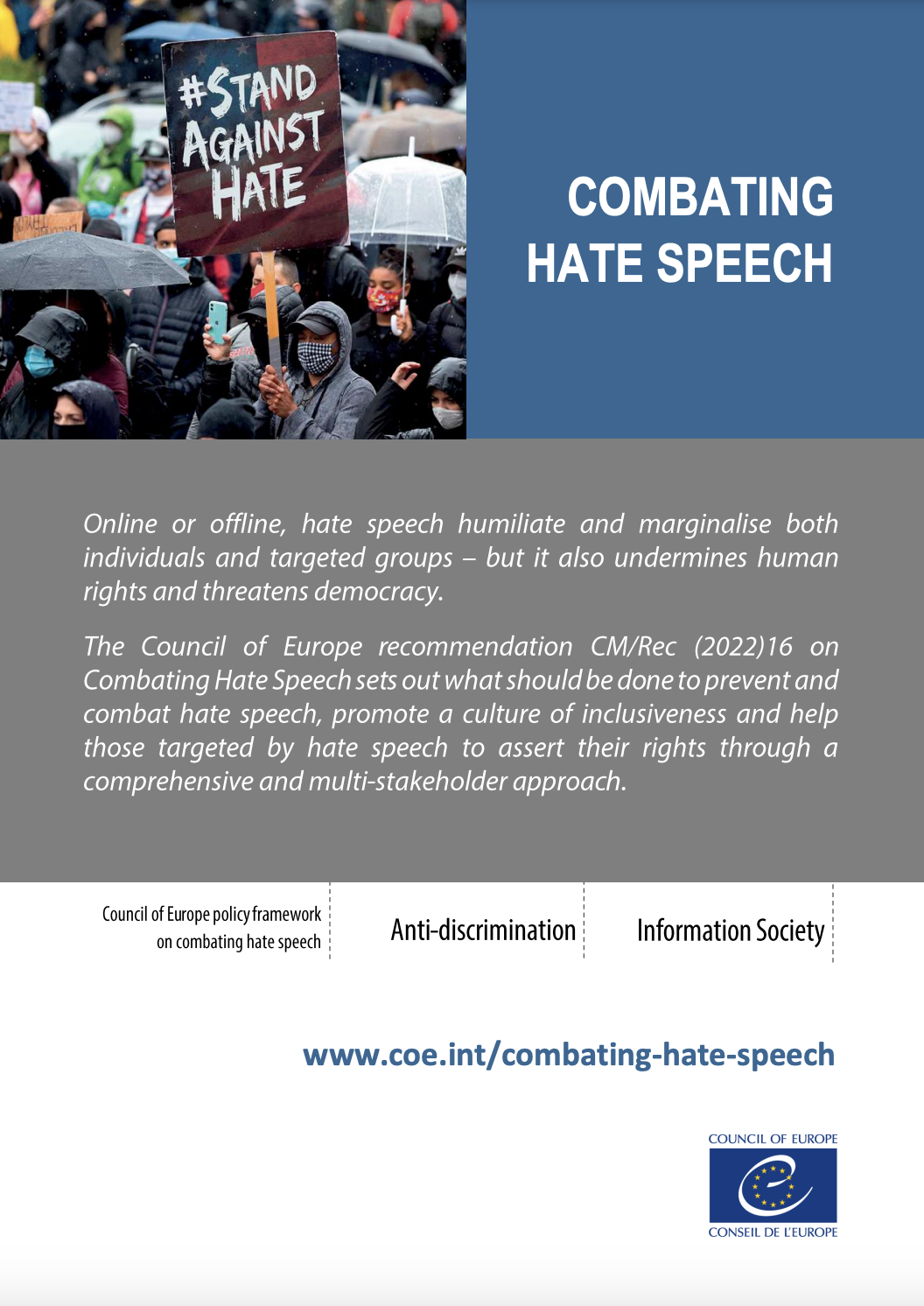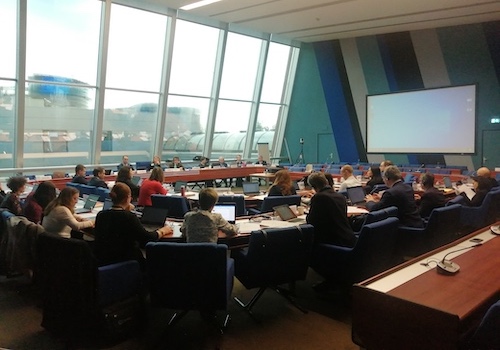Recommendation on Combating Hate Speech
The CM/Rec (2022) 16 on Combating Hate Speech was adopted by the Committee of Ministers on 20 May 2022. The Committee of Experts ADI/MSI-DIS prepared the Recommendation, which outlines a comprehensive approach to addressing hate speech within a Human Rights Framework.
This recommendation and its explanatory memorandum provides guidance for member State to implement a comprehensive and calibrated set of legal and non-legal measures. It builds on International human rights standards and relevant case-law of the European Court of Human Rights and pays special attention to the online environment in which most of today’s hate speech can be found. The recommendation also addresses other key actors, including public officials, elected bodies and political parties, internet intermediaries, media and civil society organisations.
The Recommendation on combating hate speech, hereinafter ‘the Recommendation’, contains a broad definition of hate speech (§2 of the Recommendation) and distinguishes within this definition different layers of hate speech (§3 of the Recommendation). It furthermore provides factors for assessing the level of severity of hate speech and guidance for developing appropriate and proportionate responses for those different layers of hate speech (§§4 et seq. of the Recommendation). The Recommendation pursues a comprehensive approach to preventing and combating hate speech. Therefore, it not only deals with the necessary legal framework for combating hate speech but also contains important guidance for addressing the root causes of hate speech through non-legal means, in particular through the recommendations made in Chapter 4 on awareness-raising, education, training and the use of counter- and alternative speech. The different constitutional and legal orders and the varying situations in the member States, will make it necessary to explore various avenues for implementing this Recommendation.
An Explanatory Memorandum accompanies the Recommendation. It outlines the reasoning behind the provided recommendations, making reference to the case law of the European Court of Human Rights, International treaties and other relevant standards. The Explanatory memorandum provides furthermore examples and considerations to assist legal professionals and practitioners operational the recommendation in their respective field.







